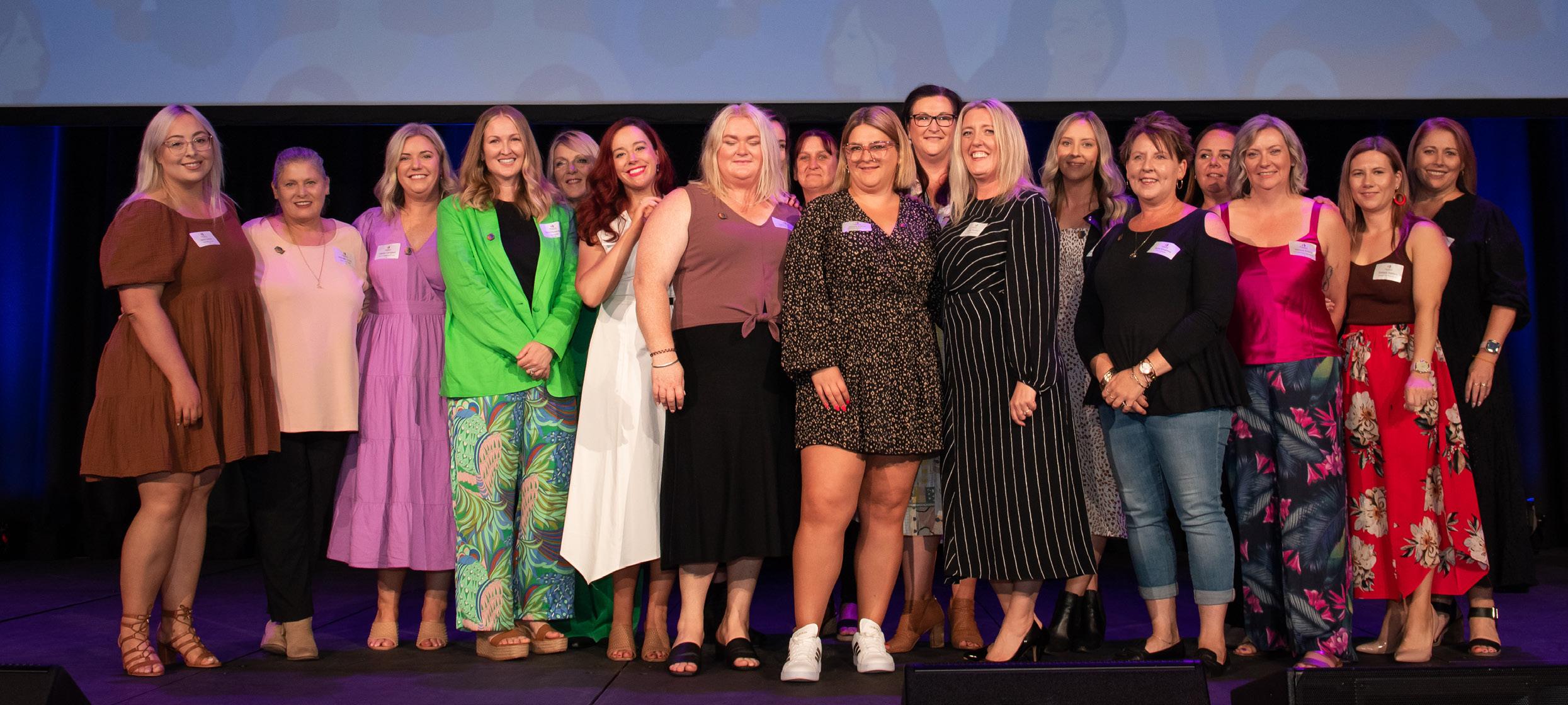
3 minute read
A CONCRETE FUTURE FOR WOMEN IN THE CONSTRUCTION INDUSTRY
Part One
Written by Nikki Orrock, Women in Civil Committee Member
Three years ago, I was working in the retail industry selling shoes. Nowadays, I oversee supply of concrete for multimillion-dollar developments. While working in retail was only ever a temporary plan, the idea that one day I would be working in the concrete industry never crossed my mind. When I was younger, I aspired to join the police force, but was encouraged to pursue a more suitable career path with a degree.
Graduating from high school, I began working in retail while I studied a double degree in Education and Arts.
Unfortunately, after undertaking a twoweek work placement in the third year of my four-year degree, I realised that teaching wasn’t the right path for me. I deferred my degree while I contemplated my next career.
After a few years working full-time in retail, I reached a point where I knew I had to start focusing on new career opportunities before too long. During this time, the world was shocked by the emergence of the COVID-19 pandemic. As shopping centres continued to close and retail workers were stood down, I realised I needed to choose what I wanted for my future. I was not living up to my potential in my current job, but I didn't want to put my life (and income) on hold again while I went back to study.
I took a job as a customer service and sales officer at the former Boral Masonry. This role was my first introduction to the industry, and due to internal structural changes, I was able to progress in my career fast over a short period of time. In hindsight, I entered this industry by chance, driven by better job security and a sustainable income. I never expected to establish myself in a career that I am incredibly passionate about and have the opportunities for career progression and personal growth. At times it is bittersweet. As satisfying as it is to have a career that I am flourishing in, it is disappointing that until I was 25 years old, the idea of working in this industry was so foreign to me; it had never previously crossed my mind that this was a genuine career pathway for me as a young woman. It makes me think about where I could be today if we were not conditioned since childhood to believe that our gender should influence our career paths.
I soon realised I had the potential to build a lasting career in the civil and construction industry. With exactly one year of industry experience working at Boral, I applied for an Account Manager role at Adbri Concrete (Adbri). During my previous role, I worked closely with the masonry sales representative to build new relationships from leads and maintain existing relationships. I was familiar with the role and wanted to take on the challenge for career progression. However, I could only picture that role being held by a male. Honestly, I was shocked to be shortlisted as a candidate for the Account Manager role at Adbri. I went into the interview thinking it was a great opportunity to develop my interview skills for the future, and that would be the most I would gain from the experience. A few weeks later I accepted Adbri’s offer to become an Account Manager there!
The transition into a male-dominated role was not easy. There were times I felt like an ‘imposter’. I was filled with self-doubt and there were times I felt overwhelmed by uncertainty. However, my manager did everything in his power to provide me with the knowledge, skills, and resources to ensure I would succeed if I was willing to put in the work. I cannot emphasise how important it is to provide women in male-dominated industries with support networks. Having a manager who mentored, supported, and believed in me was the difference between me being successful or unsuccessful in my journey. I would not be the empowered and confident person I am today without the time and commitment my manager put into coaching and developing me to be successful. There are many incredibly successful women in the construction materials industry who have been supported by great leaders and progressive companies. I believe these are critical to increasing the number of the female workforce.
Additionally, I am thankful to work for a company like Adbri that has a genuine commitment to diversity. It is one of many companies creating opportunities for women in the construction industry and working towards a more diverse future.
It makes me proud to know that all major suppliers of construction materials in SA have women employed in what were previously perceived as maledominated roles.
In the next issue of Civil Connect, I will be sharing the journeys of some women who have worked to enjoy fulfilling careers in the construction industry. I hope their experiences will inspire more women to do the same.











